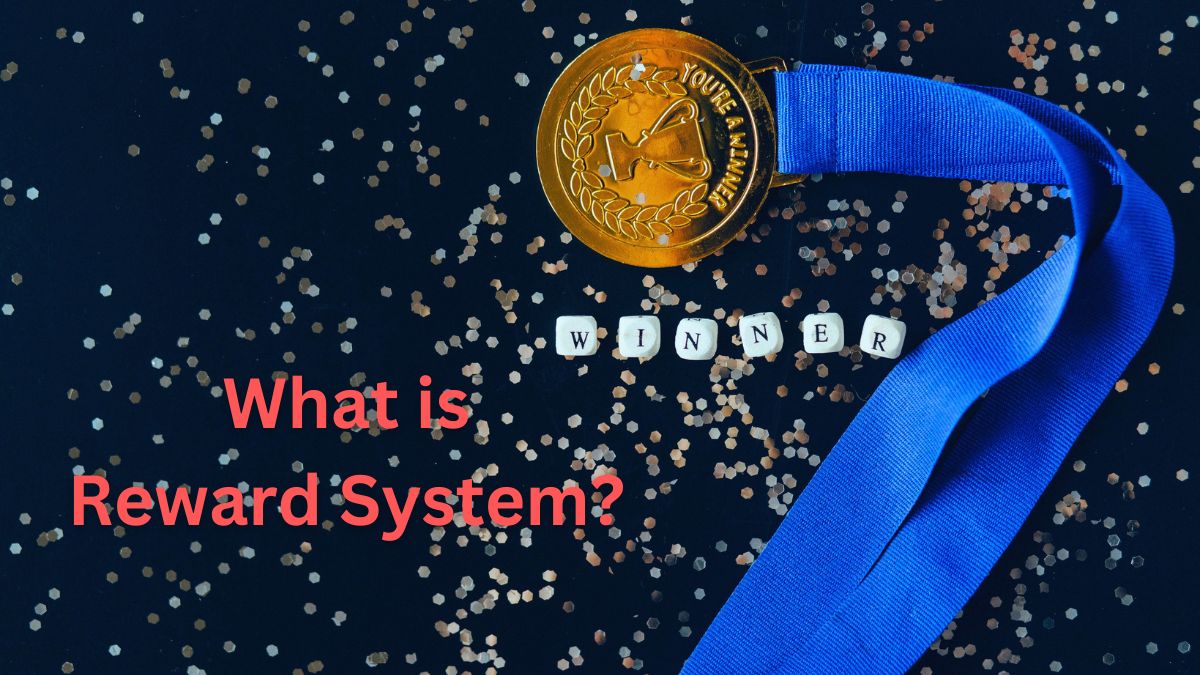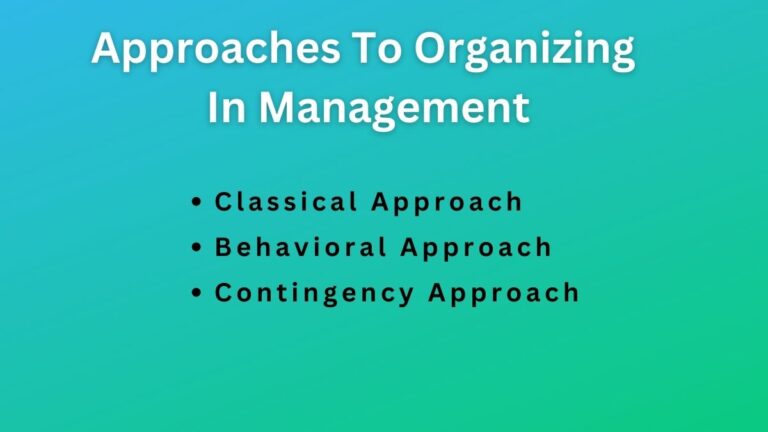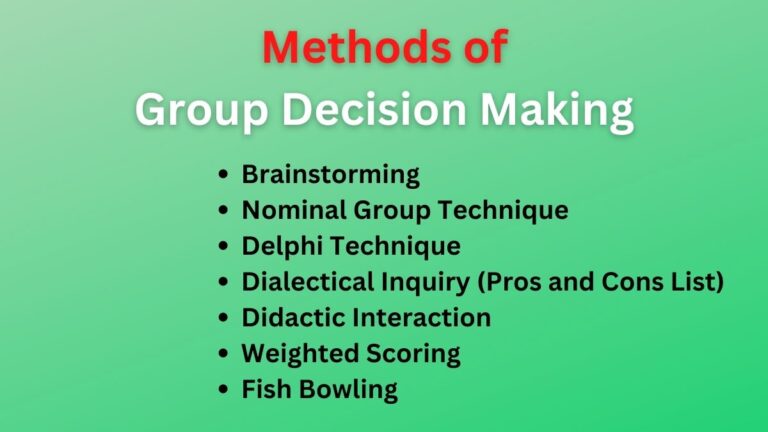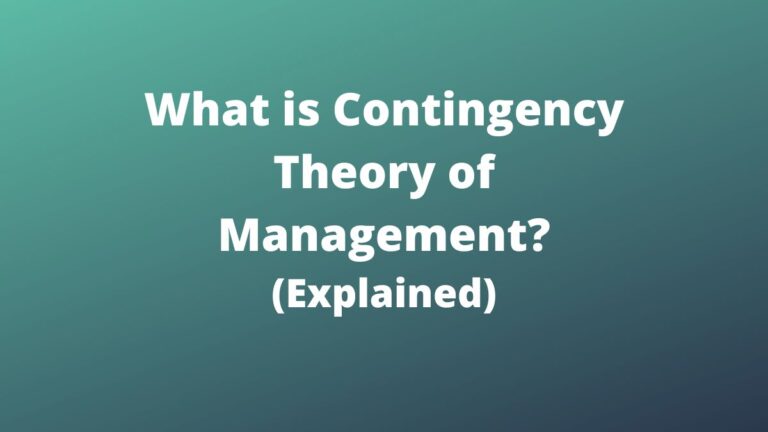What is A Reward System? Definition, Features, Types, and Benefits
What is Reward System?
A reward system, commonly known as an employee reward system is a rule, procedure, and standard for defining, determining, and allocating benefits and compensations to employees for their contributions.
The reward may be in terms of monetary or non-monetary as well as intrinsic or extrinsic. It is an effective tool to motivate employees. It creates a positive impact on employees’ willingness which ultimately improves their performance and productivity.
As such, the reward system affects the performance of the organization in both the short and long run. It should be much more attractive so that the best employees not only are retained but wish to contribute their best to the organization.
Sometimes organizations use rewards as an extra payment to employees in addition to their basic pay. For instance, when employees perform extraordinarily they are given bonuses, recognition, and other various gifts.
Characteristics of Effective Reward System
An effective reward system has the quality to satisfy and motivate employees within the organizational scope. It has the following features.
Transparent
The reward system should be transparent. Each employee should know the reward at a different level of performance. They ought to be aware of their desire for the compensation that other workers receive at varying levels of output.
Based on Needs
It should also be based on the needs of employees. As we know, different employees have different needs and desires. Different employees may be guided by different motives.
Related: Maslow’s Hierarchy of Needs
Even within the same employee, there might be different levels of needs at a time. Therefore, the reward system should be able to satisfy the diverse needs of employees.
If the rewards and needs of employees do not match, employee satisfaction remains low. The system will unnecessarily be expensive without fulfilling the objectives.
Equitable
The system should be based on the principle of equitable distribution. Rewards for different employees performing at the same level should get the same rewards. There should not be any bias for pay and perks.
Performance Based
Reward systems must be based on the performance of employees. If the reward is not related to performance, based on the nearest and dearest basis, then it discourages loyal and devoted employees. So, everything in the reward must be attached to the performance.
Economic
Reward programs should not be unnecessarily expensive. Every provision of the reward program influences the organization in the long run. So, to determine it, management should examine the long and short-term impact of the policy taken. As such, the reward program should not result in a financial burden to the organization.
Variety in Rewards
Reward systems should be managed in a way that the reward or output at the different levels of performance should be different. The same reward for all the levels of output may not be interesting and hence do not encourage the employees.
Read Also: McClleland’s Theory of Motivation
Reinforcement Based
The reward should be provided on a continuous basis so that it will positively reinforce employees’ behavior. Terminating rewards for a long time can not motivate employees. If possible, additional rewards like incentives, bonuses, or other facilities should be divided into different interval payments.
Types of Reward System
The reward system can be classified into two basic forms as mentioned below:
Financial and Non-Financial Rewards
The reward can be classified into two types on the basis of whether it is linked to direct cash i.e. monetary term or not. Salary, pay, commission, allowances, and other monetary words are directly related to financial reward. With the belief that money is a powerful motivator since it meets both the employees’ and their possessions’ basic requirements, financial rewards are given to the workforce.
Most people are highly motivated since it is deeply ingrained and affect how employees live. Financial benefits include a good salary, bonus, allowance, overtime compensation, etc. The socioeconomic component of the job determines how much money is awarded.
Non-financial rewards, however, can take any form depending on the company’s culture and behavior. Non-financial rewards are those that cannot be directly translated into monetary values. Verbal incentives (such as thanks, good work, well done, praise, etc.), time off, employee of the month awards, recommendations, taking part in decision-making, promotions, etc. are just a few examples. Such rewards are crucial to satisfying the higher needs of professional and personal success.
Intrinsic and Extrinsic Rewards
Apart from money, power, authority, and status, people also derive satisfaction from their job. Job satisfaction is also considered to be one of the rewards for people. Job design, job enlargement, job enrichment, empowerment, etc. which make the job more challenging are job-related rewards.
Such rewards make employees satisfied from the inner heart which is therefore internal rewards. In simple words, self-induced rewards because of the job itself are intrinsic rewards. Employees feel motivated with satisfied. Intrinsic rewards are related to job content which guarantees employees’ growth and advancement.
On the other hand, if the rewards can be seen by other people, they are called extrinsic rewards. They are in the form of salary, bonus, allowances, promotion, authority, etc. Such rewards are related to the job performance of the employee, the policy and financial position of the organization, the cost of living, and the business environment.
Benefits of Reward System
An effective reward system may provide the following benefits to your organization.
Employee Motivation
Employees’ motivation increases when they perceive a fair reward practice in the organization. The more fair, reasonable, and practical reward practice is maintained in the workplace the more motivated employees will be.
Related: Strategies To Motivate Employees
Increased Attendance
It is obvious that when employees are motivated they show their greater willingness toward the interest of the organization. As such, they tend to show higher attendance during organizational activities and also encourage others to stay longer.
Increased Performance and Productivity
It is a well-known fact that when employees are motivated they always do more than the average. An effective reward system also increases the satisfaction of employees. Satisfied and motivated employees put their best effort into dealing with organizational matters, and as a result, there seems increased performance and productivity of both employees and the organization.
Read Next: Theories of Motivation
Sajan Kushmi is a content writer with more than 4 years of experience. He holds BIM Degree. He write on the topics related to Management, Marketing, and Entrepreneurship.






